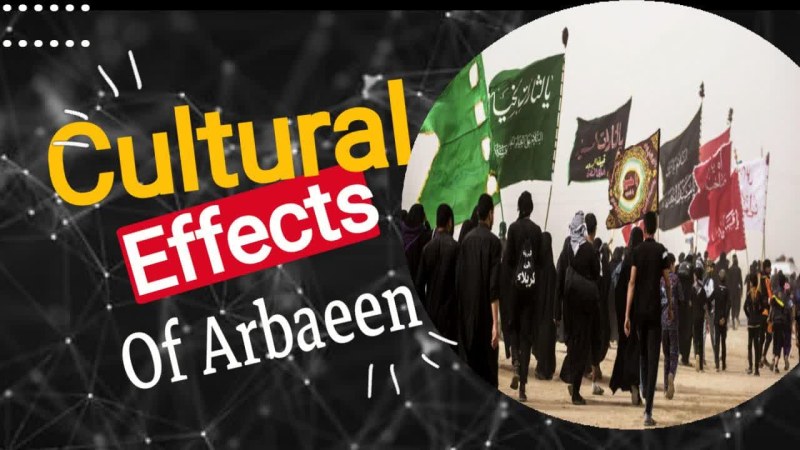-Arbaeen marks the 40th day after the martyrdom of Imam Hussein, the grandson of the Prophet Muhammad, who was killed in the Battle of Karbala in 680 CE. The Arbaeen pilgrimage is one of the largest annual religious gatherings globally, where millions of Shia Muslims and others walk to the holy city of Karbala in Iraq.

The cultural effects of Imam Hossein's Arbaeen on the Islamic Ummah
Arbaeen marks the 40th day after the martyrdom of Imam Hussein, the grandson of the Prophet Muhammad, who was killed in the Battle of Karbala in 680 CE. The Arbaeen pilgrimage is one of the largest annual religious gatherings globally, where millions of Shia Muslims and others walk to the holy city of Karbala in Iraq.
Here is an extended analysis of the spiritual and political effects of the Arbaeen pilgrimage, each with 15 points:
Spiritual Effects:
1. Deepening of Personal Devotion:
The pilgrimage to Karbala is a spiritual journey that allows individuals to deepen their connection with God and the Ahl al-Bayt (the family of the Prophet Muhammad).
2. Renewal of Moral and Ethical Values:
Pilgrims are encouraged to recommit to the moral and ethical values exemplified by Imam Hussein, such as honesty, integrity, and compassion.
3. Spiritual Healing and Reflection:
Many pilgrims find the experience to be a form of spiritual healing, providing an opportunity to reflect on their lives and seek forgiveness and renewal.
4. Inspiration from Historical Legacy:
Reflecting on the legacy of Imam Hussein inspires pilgrims to emulate his courage and steadfastness in their own lives.
5. Cultivation of Patience and Endurance:
The physical demands of the pilgrimage cultivate patience and endurance, qualities that are highly valued in Islamic spirituality.
6. Promotion of Humility:
Traveling alongside millions of others, often on foot, fosters a sense of humility and equality among pilgrims.
7. Experiencing Collective Worship:
The shared experience of prayer and worship among large crowds enhances the sense of collective spirituality and devotion.
8. Revitalization of Hope and Optimism:
Many pilgrims return with a renewed sense of hope and optimism, believing in the possibility of positive change in their lives and communities.
9. Engagement in Charitable Acts:
The pilgrimage encourages acts of charity and kindness, as many participants engage in feeding and helping others along the journey.
10. Strengthening of Familial and Community Bonds:
The shared pilgrimage experience strengthens bonds within families and communities, as people travel together and support each other.
11. Enhancement of Personal Discipline:
The pilgrimage requires a level of personal discipline and sacrifice, encouraging pilgrims to adopt these values in their daily lives.
12. Awareness of the Transience of Life:
Reflecting on the sacrifices of Imam Hussein reminds pilgrims of the temporary nature of worldly life and the importance of focusing on spiritual goals.
13. Fostering a Sense of Gratitude:
The journey helps individuals appreciate the blessings in their lives and fosters a sense of gratitude toward God.
14. Promotion of Selflessness:
The pilgrimage experience teaches selflessness, as pilgrims often put the needs of others before their own during the journey.
15. Connection to a Larger Spiritual Community:
Participating in Arbaeen connects individuals to a global spiritual community, reinforcing their sense of belonging to the wider Muslim ummah.



